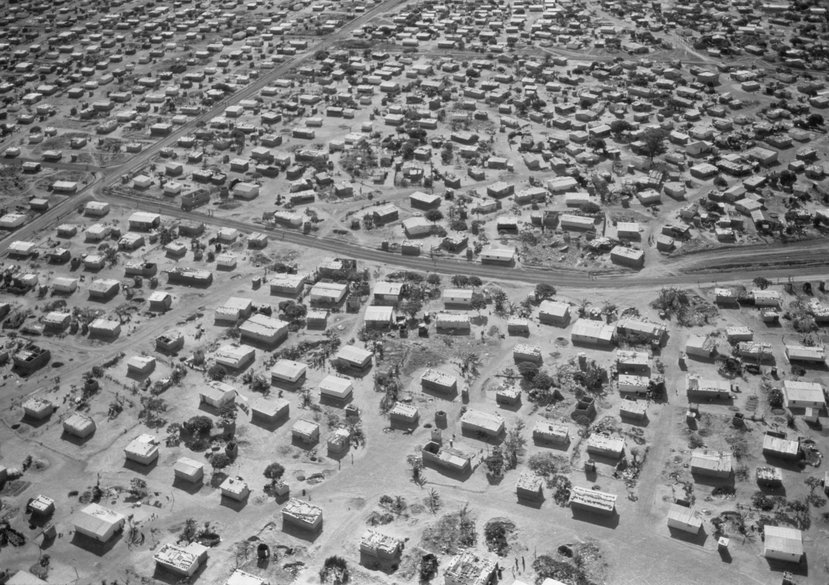
URBAN COLD WAR: The development politics of US housing operations in the Third World during the 1970s and 1980s
This research traces the history of an urban development operation implemented by the United States on a geopolitical scale. It shows how architecture and urbanism in developing countries across the world were instrumentalised to fortify the conflict lines of Cold War confrontations. One aim of my thesis is to explore the role that large-scale housing constructions – argued to bring development and modernisation to the Third World – played in this confrontation. Another one is to examine how the US helped to promote an alternative architectural practice of self-help as a rapid and low-cost strategy to provide housing but was essentially aimed at disseminating liberal ideas of capitalism propagated under the slogans of freedom and democracy.
In this thesis, I particularly analyse the World Bank’s Sites and Services self-help housing program, deployed through modularised design implemented in thirty-eight developing countries in America, Africa and Asia between 1972 and 1981. The fact that there are similarities in these housing programmes’ architectural features makes it possible to compare the operation’s impact on built and social environments transnationally across the Global South.
This research primary source is the World Bank Archive, containing urban operations’ reports disclosed in the last ten years. These documents comprise housing projects’ qualitative and quantitative data, among photographs, maps, plans and drawings unseen in previous studies. These files are complemented by the disclosure request of archival records containing memorandums, letters, and contracts between the World Bank and local officials. This material is confronted with institutional, national, and personal archives, such as John Turner’s files, to comprehend the implementation of –and critiques on– the World Bank urban development. While looking at these collections, it investigates newspaper and specialised literature such as magazines, journals, critical reviews, and exhibition catalogues. This thesis builds on a series of new interviews held with architects, planners and politicians of the period to examine the micros-stories behind this geopolitical housing operation.
While this thesis sets out its analysis to regard the Cold War period along its dichotomy of exploiters and victims between the North and the South, it will show the ambivalent nature of the conflict lines in the relationship between the US and developing countries. It will focus on Latin America to show how the ideals of liberalism were spread through new urbanisations and how these projects and interventions created unexpected geographies of collaboration, resistance and negotiation engaged in the post-war period.
Key details
School, Centre or Area
Supervisors
Funding
-
Becas Chile
Gallery
More about Francisco
Degrees
Master in Design Studies. Urbanism, Landscape, Ecology concentration. Harvard. 2014
Architect & Master in Architecture. Pontificia Universidad Católica de Chile. 2010
